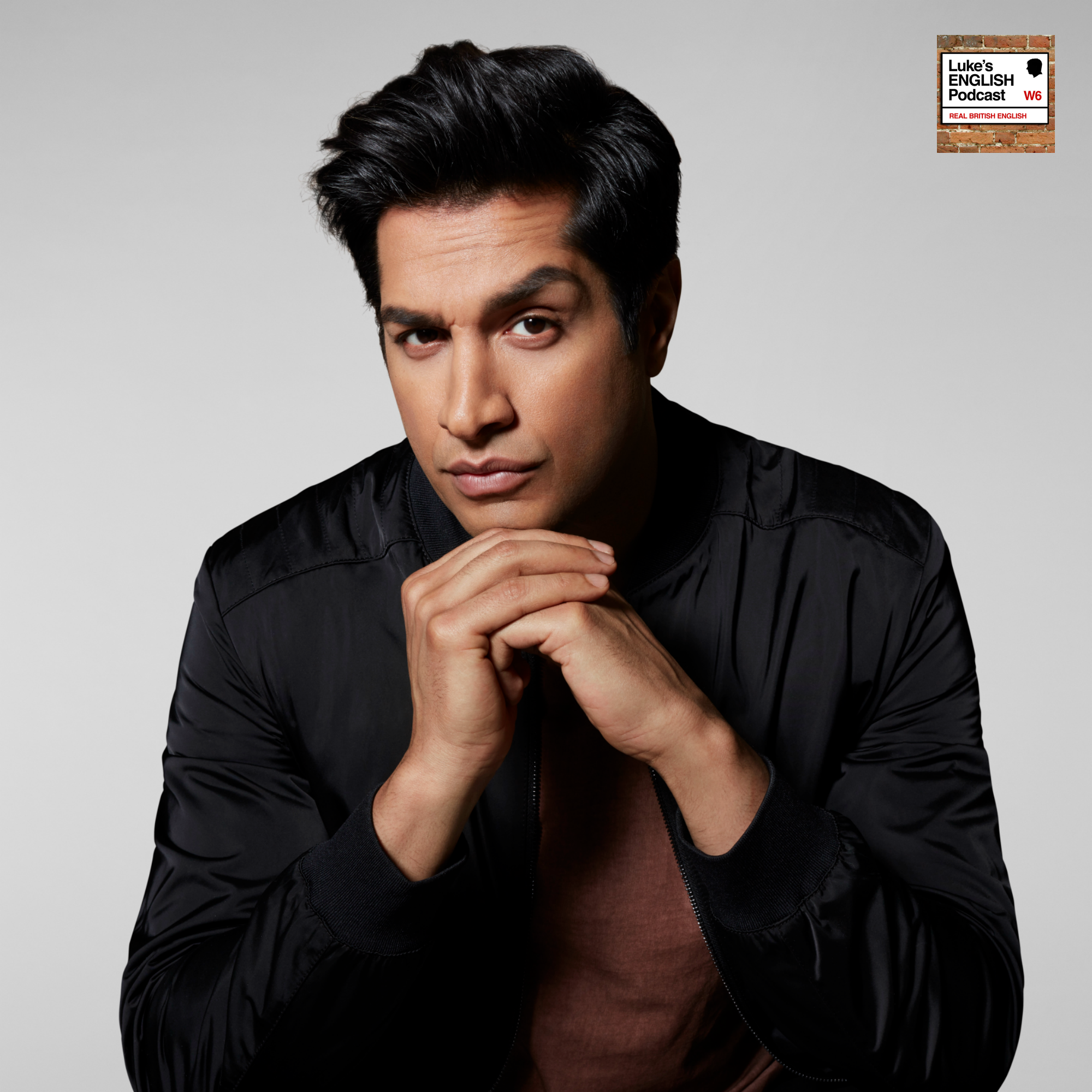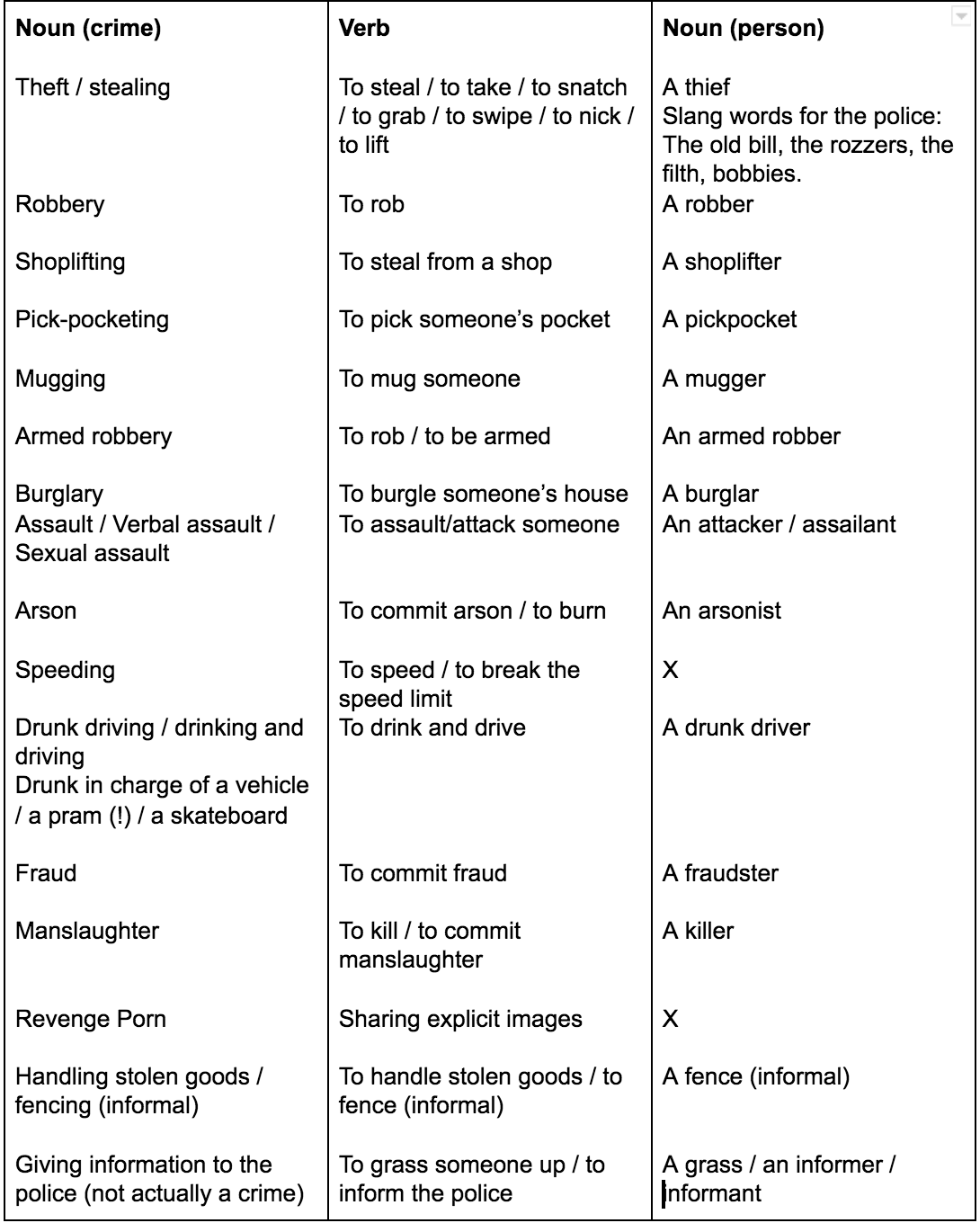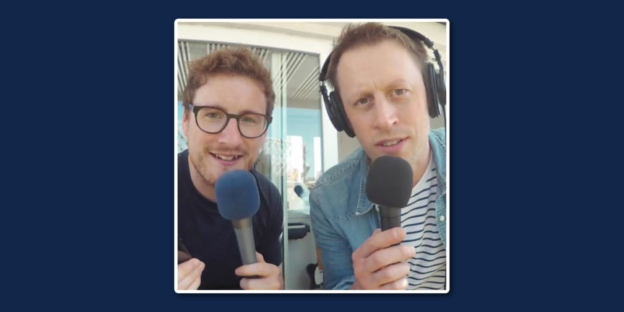Sugar Sammy is a very popular and famous comedian from Canada. He’s often described as Montreal’s #1 stand up comedian. He speaks 4 languages, he has performed comedy in lots of countries. He might be coming to your country soon to make you laugh. Ladies and gentlemen – meet the wonderful Sugar Sammy!
![]() [DOWNLOAD]
[DOWNLOAD]
Join Sugar Sammy’s Mailing List – for news of his international shows
Introduction Transcript
Hi everyone. This is quite a special episode because of today’s guest. I’m talking to a really famous comedian, so it was quite a thrill for me and I really hope that it translates into a good listening experience for you too and that it grabs your attention and not just because it’s a chance to practise your listening in English.
You know that as well as being an English teacher and a podcaster, I’m a stand up comedian, which means that I go onstage in front of audiences and try to make them laugh – by telling jokes, telling stories and doing voices. Stand up comedy is huge as a form of entertainment, and arguably as an art form – particularly in the English speaking world. In Paris, where I live, there is a stand up comedy scene in English. It’s pretty small – there are not that many English speaking comedians and shows in English, and in some ways that’s actually really cool because I get to meet and hang around with some pretty famous people who come here to do comedy. For example there are the professional French comedians who also perform in English, and I’m talking about people like Gad Elmaleh (the biggest French speaking comedian in the world) who I have kind of met (I said hello to him and we performed on the same show) and other French comics like Yacine Belhousse and Noman Hosni (who have been on this podcast), but also comedians who come here from other places like the UK, the USA or Canada to perform their comedy in English or maybe in French – people like Eddie Izzard, Ian Moore and so on. Basically, because it’s a small scene I get to meet and hang out with some really great comedy stars.
That’s how I met today’s guest – Sugar Sammy who comes from Canada.

Sugar Sammy
Sugar Sammy is a genuine star of comedy. He’s probably the biggest name I’ve ever had on this podcast. I had David Crystal of course – the famous linguist. You know I’m interested in language and language teaching, so David Crystal was a big guest for that reason but I’m also obsessed with stand up comedy and Sammy is massively famous in the world of stand-up especially in Canada, and I’m lucky to be friendly enough with him to get him on this podcast.
Some information on Sammy
In terms of his background, he was born and grew up in Montreal, Canada – a bilingual city. The official language there is French but everyone can speak English too.
In total he speaks 4 languages – English, French, Punjabi and Hindi – and he does stand up comedy in all of them.
He is of Indian origin. I’m not sure of the details but I’m guessing that his parents or maybe even his grandparents moved to Canada from India at some point. Anyway, this is why he can speak Punjabi and Hindi – both Indian languages.
He has a list of accomplishments and awards as long as your arm. I don’t know how long your arm is, but I’m assuming it’s very long because so is this list.
(A list as long as your arm – it’s just a phrase meaning “a long list”)
A quick look at his Wikipedia page tells you about his achievements:
He’s done sold out one man shows, HBO comedy specials, his own TV shows, he’s opened for Dave Chappelle, he gets featured in newspapers and photographed by paparazzi.
One of his main accomplishments is that he was the first to perform a successful bilingual show in Quebec – a place which is notorious for how it protects French as the official language, so performing in English, Punjabi and Hindi there was actually a very controversial thing to do.
He once performed in front of over 115,000 people at the end of a 420 show tour at the Just For Laughs festival in 2016.
Sammy has performed all around the world in the United States, Canada, France, Belgium, England, Australia, Germany, Ireland, the Netherlands, Hong Kong, Thailand, the Philippines, China, India, Bahrain, Jordan, Qatar, Egypt, Kuwait, Abu Dhabi, Lebanon, Singapore, Malaysia, Saudi Arabia, Bahrain, Northern Ireland, Dubai, Haiti[12] New Zealand and South Africa, where his one-man show sold 15,000 tickets.[13]
And that’s just in English. He also has a successful comedy career in French.
As a stand up comedian I would describe him as confident, charming, very sharp, good at imitating different accents, good at playing with cultural stereotypes, excellent at exploiting people’s cultural assumptions and very very quick when it comes to doing crowd work – improvising off the interactions he has with members of the audience.
His shows always include a lot of improvisation in which he talks to the people on the front row and always manages to turn the interactions into very funny moments of comedy.
If you want information on how to see Sammy on stage, go to his website sugarsammy.com
You can see him performing in French in Paris at the Alhambra theatre, and later this year he is going to tour internationally – and he has plans to visit parts of Asia – including Malaysia, Singapore, China and Japan and potentially even more places. So, seriously – watch out for Sugar Sammy doing shows in your country soon and I really recommend that you get out and see him.
Sugar Sammy is a world-class comedian and a really cool guy and I’m pleased to have him on the podcast.
In terms of his English and his accent – he is a Canadian native speaker of English, so he has a typical Canadian accent, which for many people is indistinguishable from a sort of standard American accent. I can usually hear the difference between Canadian and American accents I think, but it’s a very subtle difference. Basically, in many cases Canadian English is very close to American English.
Our conversation focuses on comedy, language and various issues relating to both of those things.
I’ve divided the conversation into two parts, which should make it easier for you to listen to. Our conversation moves pretty quickly. It might be difficult to follow – depending on your level of English. You can see as you listen to it. Part 2 will be available soon.
I think we’re lucky to be able to listen to Sammy on this podcast. I feel very grateful to have been able to sit down and talk to him for over an hour. As you are all learners of English I hope that this provides you with the interesting, engaging and authentic English listening practice that you’re looking for. I won’t say any more in the introduction here. It’s time to just start listening to my chat with Sugar Sammy.
Ending Transcript
I’m stopping the conversation there. The rest will come in part 2.
Sammy is excited about new people… and win them over.
That could be you!
sugarsammy.com
So, I wonder how this is for you. How is this for you so far?
I said already that for me it was a thrill to record this conversation – partly because Sammy is a top comedian and it feels like a privilege to be able to interview him, but also because it’s just loads of fun to talk to him and hang out with him.
But how’s it going for you? Are you alright? I certainly hope you’re enjoying this as much as you actually should be enjoying it. Because, just in case you didn’t realise, you really should be enjoying this quite a lot.
I expect you are enjoying it like I am, but it’s probably a bit hard to follow in places. It’s probably been quite difficult to follow everything, – but of course it depends on your level of English, you listening skills.
But if it is hard to follow sometimes, then I’m not surprised! First of all, you’re probably listening to this because you’re learning English, in which case, if it’s hard to follow everything in a native-level conversation like this then that makes total sense and is completely normal. You’re not a native speaker so it’s bound to be more difficult. What I’d say to you is – keep listening, keep practising. You can understand conversations like this 100%. It takes time and practice, and motivation and positivity, but you can definitely do it.
Also, let’s not forget that in episodes of this podcast I often play you natural conversations between friends that are not graded. Nobody’s trying to simplify their English or anything. It’s also spontaneous and fast like a normal conversation. So, I am not surprised if it’s difficult sometimes. That’s normal. This is not a listening exercise in a coursebook published by Oxford University Press. The recordings you get in those publications are usually scripted, and graded to make them easier to understand – even at advanced levels. For example, Headway Upper Intermediate and Headway Advanced.
They’re easier, aren’t they? Don’t get me wrong, they’re good publications, but they go for a different approach. They grade their listening materials. My conversations aren’t graded. In fact I specifically ask my guests to speak naturally – because I want them to be natural and I want them to still be funny and relaxed because for me what we might lose in terms of intelligibility we gain in authenticity and in humour, basically.
Right. So listening to this conversation with Sugar Sammy is the real thing, so it’s normal if it’s pretty tough, but for me this is a good strong way to work on your English. It’s a bit like high-altitude training – when people train high in the mountains where there’s less oxygen. It’s hard, it’s strenuous, it’s challenging, but when you go back down to lower altitude levels where there’s more oxygen, you’re suddenly much more effective and the training really pays off.
Anyway, speaking for myself, this was a really fun episode to do and if I were you I would listen to it several times to squeeze maximum enjoyment out of it – because I promise you that if you listen again you’ll understand and therefore enjoy it even more, and then you can also get stuck into part 2 which may already be available for you.
Come on people. Seriously, you’re getting more than your money’s worth here are you not?
Check out the page on the website for some more details, including a transcription of my intro and ending to this episode, a video of Sammy improvising on stage talking to an Iraqi guy in the audience who has moved to Texas, also you can see video of Bill Hicks and his routine about being asked “What are you reading for?” and a video of the extraordinary Russian singer Vitas doing his song 7th Element.
Thanks for listening. Get my app from the app store to get all my episodes on your phone plus loads of bonus content and access to premium episodes when they are available.
Speak to you again in part two.
Bye!
Sugar Sammy & The Happy Iraqi in Texas
Bill Hicks – “What are you reading for?”
Vitas – 7th Element
Rosanne Barr Controversy
Court Jesters
https://www.historyextra.com/period/medieval/what-was-life-like-for-a-court-jester/









 So Jack, on my recent trip back to the UK I picked something up for you. I know you’re into cars, so let me hand you the keys to a 1975 Rolls Royce Silver Shadow. This is the ultimate in classic British luxury motoring, at the time it was released this was absolutely the top of the range in terms of comfort, style and quality and remains to this day a symbol of British class and sophistication. It doesn’t get better than this. With its massive V8 engine delivering 190BHP , steel frame, vacuum assisted brakes, power steering, manual 3 speed gearbox and top speed of 106mph this is a precision machine from the golden age of British motoring. Admittedly this 43 year old vehicle is no longer top of the range and can’t compete with modern day equivalents such as the high performance luxury models produced by Bentley, but for a leisurely drive through the British countryside in the most quintessentially British manner this has to be the number 1 choice. They don’t make them like this any more. The engine delivers a powerful, stately and commanding sense of control and the ride is so utterly smooth and poised that you can enjoy afternoon tea and cake with guests in the back without spilling a drop on the leather upholstery. It oozes charm, it breathes refinery, it is the epitome of retro British eccentricity. The Rolls Royce Silver Shadow.
So Jack, on my recent trip back to the UK I picked something up for you. I know you’re into cars, so let me hand you the keys to a 1975 Rolls Royce Silver Shadow. This is the ultimate in classic British luxury motoring, at the time it was released this was absolutely the top of the range in terms of comfort, style and quality and remains to this day a symbol of British class and sophistication. It doesn’t get better than this. With its massive V8 engine delivering 190BHP , steel frame, vacuum assisted brakes, power steering, manual 3 speed gearbox and top speed of 106mph this is a precision machine from the golden age of British motoring. Admittedly this 43 year old vehicle is no longer top of the range and can’t compete with modern day equivalents such as the high performance luxury models produced by Bentley, but for a leisurely drive through the British countryside in the most quintessentially British manner this has to be the number 1 choice. They don’t make them like this any more. The engine delivers a powerful, stately and commanding sense of control and the ride is so utterly smooth and poised that you can enjoy afternoon tea and cake with guests in the back without spilling a drop on the leather upholstery. It oozes charm, it breathes refinery, it is the epitome of retro British eccentricity. The Rolls Royce Silver Shadow.